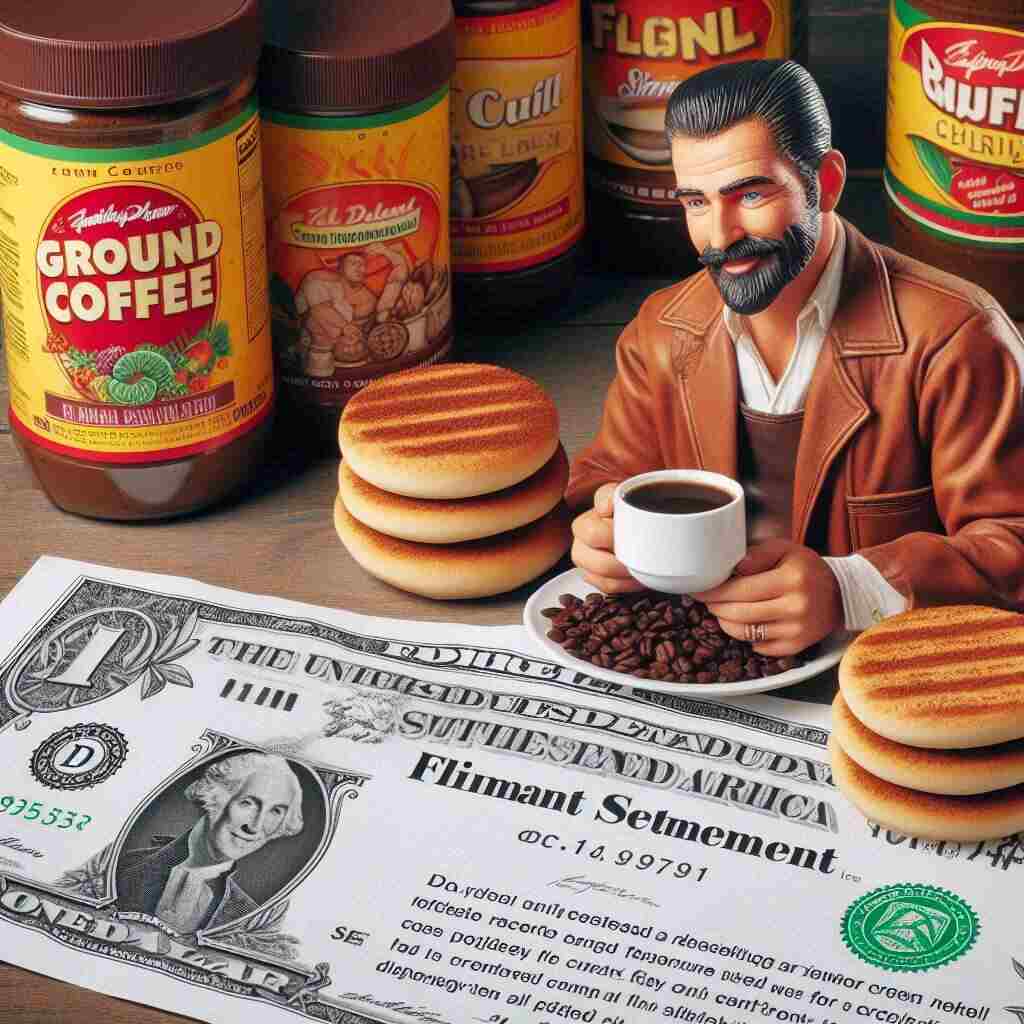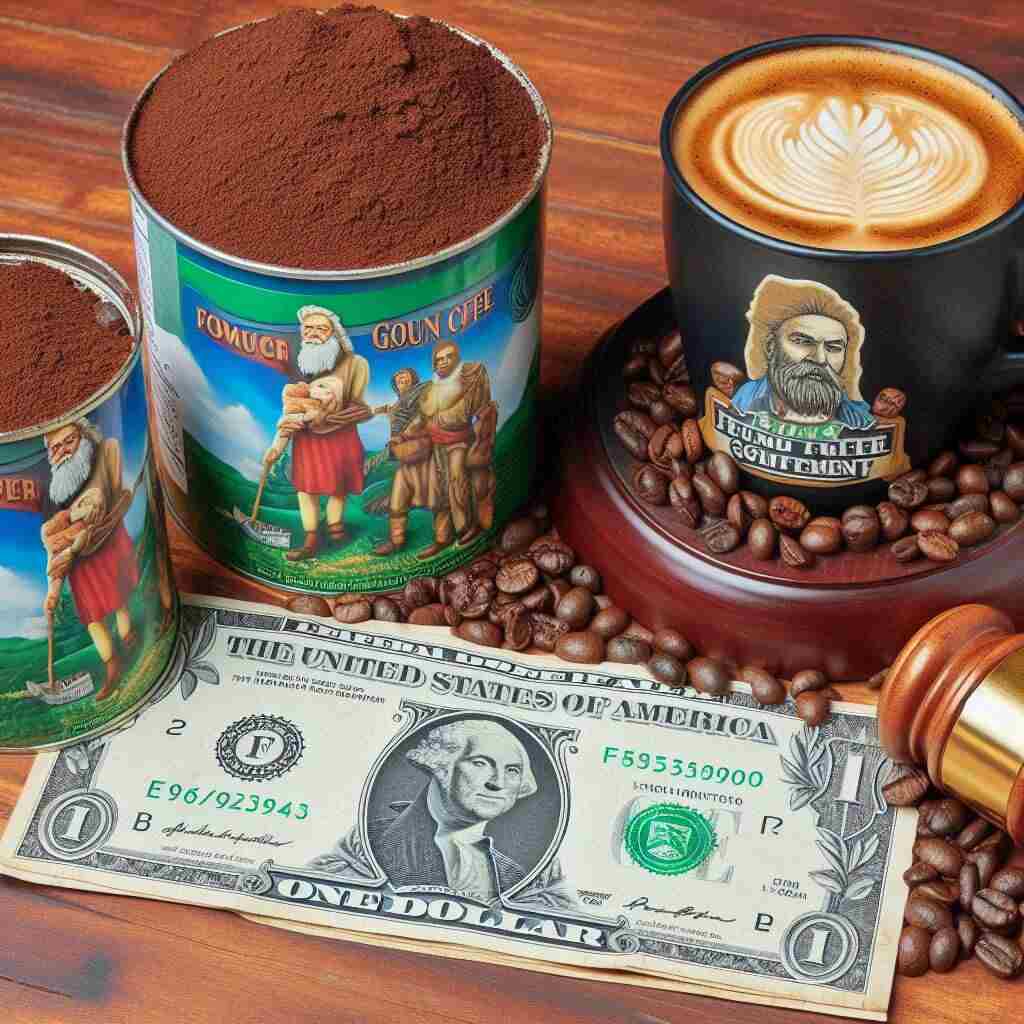Family Dollar Ground Coffee Lawsuit Settlement
Ever grabbed a bag of ground coffee from Family Dollar thinking you’re getting a great deal—only to find out later you might’ve been misled? If so, you’re not alone. A recent lawsuit shook things up for Family Dollar over its allegedly misleading coffee packaging. This case has sparked a lot of interest and concern among regular shoppers and coffee lovers alike.
So, what really went down with the Family Dollar ground coffee lawsuit? Why are people talking about a settlement? And if you bought their coffee, could you actually get some money back? Let’s dive into the details and break it all down, step by step.
The Background of the Lawsuit

Who Filed the Lawsuit and Why
The lawsuit was filed as a class-action complaint, meaning it represented a large group of people who all felt wronged in the same way. It was led by a few named plaintiffs who claimed that the Family Dollar brand ground coffee was marketed in a deceptive manner.
The Core Allegation Against Family Dollar
The core issue? The plaintiffs argued that Family Dollar exaggerated how many cups of coffee its ground coffee could actually make. The label said one thing, but the real-life brewing results didn’t add up.
Timeline of Events
The legal battle started a few years ago, around the time consumers began noticing a mismatch between the advertised number of servings and what the coffee could reasonably produce. After some back-and-forth in court, the parties agreed to a settlement—though Family Dollar didn’t admit to doing anything wrong.
What Was Allegedly Wrong With the Ground Coffee?

Misleading Packaging Claims
Family Dollar’s coffee packages allegedly claimed they could make up to 210 cups of coffee, depending on the product size. But when customers followed brewing instructions, they fell way short of that number.
Quantity vs. Quality Concerns
It wasn’t just about the quantity. Some consumers noted that they had to use more grounds per cup to get a decent flavor, further reducing the total number of cups they could make per package.
Consumer Reactions and Complaints
As more people caught on, complaints began piling up online and through consumer watchdogs. Eventually, legal action followed.
Legal Arguments in the Case

False Advertising and Consumer Fraud
The plaintiffs claimed that Family Dollar violated truth-in-advertising laws by making false or misleading statements about the coffee’s yield.
Breach of Warranty Claims
They also argued the product failed to live up to its implied warranty, because it didn’t perform as advertised.
Violations of State Consumer Protection Laws
The lawsuit brought in various state-specific consumer protection laws, which aim to safeguard buyers from deceptive business practices.
Family Dollar’s Response to the Allegations
Denial of Wrongdoing
Family Dollar denied all wrongdoing. They maintained that their packaging was accurate and that brewing strength is subjective.
Statements to the Press and Public
They kept public comments minimal, but court documents reveal that they believed the claims were without merit.
Legal Strategy and Settlement Decision
Still, they chose to settle the lawsuit to avoid ongoing litigation costs and potential reputational damage. Settlements don’t mean guilt—it’s often just the easiest path forward.
The Settlement Agreement
Terms of the Settlement
The settlement includes monetary compensation to eligible consumers who purchased specific Family Dollar ground coffee products.
Compensation Details
Shoppers who can show proof of purchase may be entitled to a higher payout. Those without receipts can still file a claim—though the amount is capped.
Does It Involve Admitting Fault?
Nope. Like many settlements, this one doesn’t involve Family Dollar admitting any wrongdoing.
Who Is Eligible to Receive Compensation?
Requirements for Eligibility
If you bought Family Dollar ground coffee labeled with a cup count between 2018 and 2022, you might qualify for compensation.
Types of Proof Needed (e.g., Receipts or Product Packaging)
Proof isn’t always required, but it helps. Photos of packaging, receipts, or loyalty card purchase history can all support your claim.
How to File a Claim for the Settlement
Step-by-Step Claim Process
- Visit the official settlement website.
- Fill out the claim form online.
- Upload your proof of purchase if you have it.
- Submit before the deadline.
Deadlines and Important Dates
The claim deadline is usually within a few months of the settlement’s final approval. Missing it could mean missing out—so act fast!
Potential Payout Amounts
How Much Can You Expect to Receive?
While exact amounts vary, payouts without receipts often range between $2 to $10. If you have proof, you could receive up to $25 or more, depending on how much you purchased.
Factors That Affect Compensation
Your payout depends on:
- Whether you have a receipt
- How many products you bought
- Total number of claims submitted
Impact of the Lawsuit on Family Dollar
Brand Reputation
Anytime a company ends up in court, it can take a toll on their image. Family Dollar is no exception.
Business Practices Going Forward
This lawsuit may push them to re-evaluate packaging and marketing claims moving forward.
Industry-Wide Implications
Other retailers might also get more cautious, especially when it comes to exaggerated serving-size claims.
Public Reaction to the Settlement
Social Media Buzz
Some users laughed it off—“It’s just coffee!” Others were fired up, saying they’d been buying the product for years under false pretenses.
Consumer Advocacy Group Statements
Groups like Truth in Advertising (TINA) praised the lawsuit for holding brands accountable and promoting transparency.
What This Means for You (the Consumer)
Why This Case Matters Beyond Coffee
It’s not just about one product. It’s about truth in marketing, something that impacts every shopper, every day.
Lessons About Paying Attention to Labels
This case reminds us to read between the lines and question big claims. Just because it’s on the label doesn’t mean it’s gospel.
Other Similar Lawsuits
Coffee-Related Class Actions in the Past
This isn’t the first time coffee landed in legal hot water. Similar lawsuits have been filed against other brands for misleading caffeine content or serving sizes.
Broader Trend of Consumer Product Lawsuits
From snacks to supplements, misleading packaging is a growing legal battleground. Shoppers are becoming savvier—and more litigious.
Avoiding Misleading Products in the Future
Red Flags to Watch For
- Vague terms like “up to”
- Tiny fine print
- Unrealistic usage claims
How to Report Suspicious Products
If something feels off, you can:
- Contact the Federal Trade Commission (FTC)
- File a complaint with your state’s Attorney General’s office
- Leave a review and warn others
Conclusion
So there you have it. The Family Dollar ground coffee lawsuit is more than just a legal blip—it’s a wake-up call for consumers everywhere. While the payouts may be small, the implications are big. It’s about trust, accountability, and making sure companies deliver what they promise.
If you’ve bought this coffee, it might be worth checking if you’re eligible for a settlement. But beyond that, let’s all stay a little more alert the next time we’re strolling the aisles.
FAQs
1. What’s the lawsuit against Family Dollar about?
It’s about allegedly misleading claims on how many cups of coffee their ground coffee can produce.
2. Can I file a claim without a receipt?
Yes, but your payout will likely be lower than if you had proof.
3. How much money can I get from the settlement?
Anywhere from $2 to over $25, depending on your purchases and documentation.
4. Do I need a lawyer to file a claim?
Nope, you can do it yourself online through the official settlement site.
5. Is this a scam?
No, this is a legitimate class-action settlement, but only go through the official website.
6. What if I no longer have the packaging?
That’s okay—receipts or purchase history may still qualify you.
7. Why didn’t Family Dollar admit wrongdoing?
Most companies settle without admitting fault to avoid dragging out the case.
8. Can I still buy the coffee from Family Dollar?
Yes, but check if the labeling has changed. It might now be more accurate.
9. Will this affect other store-brand products?
It might. Other companies are likely watching and adjusting their claims accordingly.
10. Where can I file a claim?
Visit the official settlement website (link should be available via news outlets or class action trackers) and follow the instructions.







